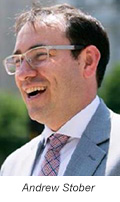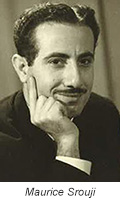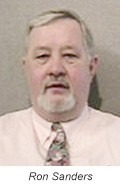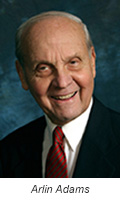Welcome Back From the President: Creativity and Achievement for Social Good
Welcome back from winter break. As we begin the spring semester, I want to remind our seniors and their mentors that the application deadline for the President’s Engagement Prizes is January 15 and the deadline for the President’s Innovation Prize is February 12. These Prizes—of a magnitude unparalleled anywhere in higher education—not only publicly recognize and reward creative projects that promote the greater good. They also proclaim our most cherished values as a university: To educate and support our students for meaningful leadership and lifelong citizenship.
Each Prize bestows a generous living allowance for one year after graduation and up to $100,000 in project expenses. All full-time undergraduates who will graduate in May, August or December of this award year are eligible to apply. I encourage seniors with a great idea to submit an application, and I also urge all our undergraduates to learn more about each Prize on CURF’s webpage. You can see how our inaugural President’s Engagement Prize winners have been putting their plans into action here: www.pennpep.upenn.edu
I look forward to receiving some fantastic applications.
While we empower our students to build a better, more innovative society, Penn continues to build an ever better, more sustainable, beautiful and innovative campus. This year, we are putting the finishing touches on some beautiful new additions that will enhance the life of the University. We will complete the new Perry World House on Locust Walk this spring, which will be the campus destination for international scholars and visiting dignitaries, as well as a hub for our faculty and students. Soon after, during the summer, we will also cut the ribbon on the new Pennovation Center at Pennovation Works. The Works already provides creative and entrepreneurial space for several great enterprises. With the opening of the new Pennovation Center, we will further fuel Penn’s leadership in transforming good ideas into great applications.
Near the heart of campus, we are in the final stages of construction on the New College House. Opening in fall 2016, New College House will bring 350 new bedrooms for students, and it has been designed from the ground up to enhance the college house experience. At the same time, we will embark on major renovations to our historic Hill College House. Also in the fall, we will celebrate the opening of our Neural and Behavioral Sciences Building. This cutting-edge science facility will be the new home for the biology and psychology departments and will foster transformative interdisciplinary research on nothing less intriguing, complex and important than how we Homo sapiens think and behave.
Great buildings, no matter how ingeniously designed, can achieve little without ingenious people to give them creative purpose. I couldn’t be more proud of our Penn people and their countless achievements in any given year, and I want to highlight just a few. Seniors Jenna Hebert and Debi Ogunrinde have been named 2016 Rhodes Scholars and will pursue their graduate studies at Oxford University. Philip Cohen, a third-year medical student at Perelman, and Carla Winter, a senior in SEAS, have won George J. Mitchell Scholarships, which will support their graduate studies in Ireland or Northern Ireland.
Congratulations to our latest Rhodes and Mitchell Scholars and all our finalists this year for a job exceedingly well done. I know the entire Penn community also joins me in congratulating Coach Priore and our fantastic Quakers football team on their Ivy League championship.
From prestigious prizes for social good, to new buildings for world-improving research and teaching, to life-saving clinical practice that builds on Penn’s great research and teaching, 2016 promises to be a banner year for our University. Welcome back to campus, and welcome to a bright new year of creativity and achievement for social good at Penn!

New Robotics Specialization
Scheduled to launch this month, the University of Pennsylvania will roll out a new robotics specialization, an online five-course sequence, via the University’s Online Learning Initiative on the Coursera platform.
Members of the School of Engineering & Applied Science’s GRASP Laboratory will teach these courses. Instructors include Vijay Kumar, the Nemirovsky Family Dean of Penn Engineering; Dan Lee, the director of the GRASP Lab; and professors Kostas Daniilidis, Daniel Koditschek, Jianbo Shi and CJ Taylor.
“Robots are virtually everywhere in our lives today,” said Dean Kumar. “No longer the stuff of science fiction, robots have evolved into complicated autonomous agents with sophisticated mapping technologies and coordination, capabilities and applications within a wide array of industries.”
Penn’s robotics specialization is designed to provide a comprehensive introduction into the fundamentals of robotics via five four-week courses: Aerial Robotics; Computational Motion Planning; Mobility, Perception and Estimation; Learning; and a final capstone project. The capstone will include a hands-on component and a simulation involving navigation, mobility and manipulation tasks.
“We are really excited to offer this new specialization. The GRASP Lab is at the forefront of advancements in this field,” said Stanton Wortham, faculty director of Penn’s Online Learning Initiative. “Now advanced learners and professionals in the STEM fields from around the globe will have access to our experts via these specialized online courses.”
The total cost of enrollment for the five courses plus the capstone is $265, and financial aid is available.
Penn’s robotics specialization builds on the University’s online courses offered via Coursera and EdX. To date, Penn’s Online Learning Initiative has reached more than 4.5 million learners in nearly 200 countries. Other online courses developed by Penn Engineering via the Online Learning Initiative offered on Coursera include Robert Ghrist’s Calculus: Single Variable, now in a 5-part series; Michael Kearns’s Networked Life; and Santosh Venkatesh’s Probability.
More information on Penn’s new robotics specialization is at http://onlinelearning.upenn.edu/penns-robotics-specialization/
UCD’s VP of Planning & Economic Development: Andrew Stober
 Andrew Stober has joined University City District (UCD) as its new vice president for planning & economic development, after working for more than six years for the City of Philadelphia. With the City, he served as the chief of staff for the Mayor’s Office of Transportation and Utilities, where he had lead responsibility for launching Philadelphia’s Indego bike share program and for raising millions of dollars in competitive public and private grant programs aimed at improving transit infrastructure. He also acted as Mayor Michael Nutter’s spokesman on transportation and energy issues, coordinated with the police and health departments to launch a significant pedestrian safety effort and brought revenue to the City through a highly successful bus shelter advertising program.
Andrew Stober has joined University City District (UCD) as its new vice president for planning & economic development, after working for more than six years for the City of Philadelphia. With the City, he served as the chief of staff for the Mayor’s Office of Transportation and Utilities, where he had lead responsibility for launching Philadelphia’s Indego bike share program and for raising millions of dollars in competitive public and private grant programs aimed at improving transit infrastructure. He also acted as Mayor Michael Nutter’s spokesman on transportation and energy issues, coordinated with the police and health departments to launch a significant pedestrian safety effort and brought revenue to the City through a highly successful bus shelter advertising program.
At UCD, Mr. Stober will oversee a portfolio that includes public space development and management, commercial corridor development and pedestrian and transportation improvements for University City, and work to continue the mission of UCD to promote a world class, vibrant neighborhood through major investments in public space development, public maintenance and public safety and by connecting entrepreneurs and residents to economic opportunity.
From the Office of the Provost Seven Professors: Penn Fellows
Provost Vincent Price and Vice Provost for Faculty Anita Allen are pleased to announce the appointment of the eighth cohort of Penn Fellows.
The Penn Fellows program, begun in 2009, provides leadership development to select Penn faculty members in mid-career. It includes opportunities to build cross-campus alliances, meet distinguished academic leaders, think strategically about universities and university governance and consult with Penn’s senior administrators.
Angela DeMichele, Alan and Jill Miller Professor in Breast Cancer Excellence in the Perelman School of Medicine, focuses on developing biomarkers, surveillance strategies and new therapeutic approaches to prevent and treat recurrent, metastatic breast cancer, as well as on research about survivorship.
Hanming Fang, Class of 1965 Term Professor of Economics in the School of Arts & Sciences, is an applied microeconomist focusing on public economics, including topics ranging from discrimination, social economics and welfare reform to public good provision mechanisms, auctions and health insurance markets.
Michael Horowitz, associate professor of political science in the School of Arts & Sciences and associate director of the Perry World House, studies military innovation, the future of war, the role of leaders in international politics, the relationships between religion and politics, and other topics with direct implications for public policy.
Hyun (Michel) Koo, professor of orthodontics in the School of Dental Medicine, focuses on understanding the assembly principles and virulence determinants of oral biofilms, as well as developing therapeutic approaches to prevent biofilm-dependent oral infectious diseases such as dental caries.
Sophia Lee, professor of law and history and deputy dean in the Law School, is a legal historian whose scholarship synthesizes labor, constitutional and administrative law, including such topics as challenges to workplace discrimination during the early Cold War and conservative legal movements in the post-New Deal era.
Jason Moore, Edward Rose Professor of Informatics in the Perelman School of Medicine and director of the Penn Institute for Biomedical Informatics, studies genetics and biomedical informatics, especially the development, evaluation and application of novel computational and statistical algorithms for identifying combinations of DNA sequence variations and combinations of environmental factors that are predictive of common disease endpoints.
Christian Terweisch, Andrew M. Heller Professor of Operations, Information and Decisions in the Wharton School, studies innovation, especially in healthcare and in innovation tournaments, which provide innovation opportunities for product designers, entrepreneurs and others in such areas as packaged goods, pharmaceuticals, financial services and technology.
From Human Resources: University of Pennsylvania Basic Plan: Notice to Interested Parties
Below* are two "Notices to Interested Parties" that are required by the IRS. The notices inform employees who are covered by the Retirement Allowance Plan of the University of Pennsylvania or by the University of Pennsylvania Basic Plan: (1) that routine applications are being made to the IRS for its determination that those Plans, as amended, continue to qualify for favorable tax treatment, and (2) of their right to comment and request relevant information. Read and retain this issue for future reference.
University of Pennsylvania Basic Plan: Notice to Interested Parties
This notice is to all present, regular employees of The Trustees of the University of Pennsylvania (the “University”) who are potentially eligible to participate in The University of Pennsylvania Basic Plan (the “Plan”) as described below.
An application is to be made to the Internal Revenue Service for an advance determination on the qualification of the following employee pension benefit plan:
Name of the Plan: The University of Pennsylvania Basic Plan
Plan Number: 028
Name and Address of Applicant:
The Trustees of the University of Pennsylvania
3401 Walnut Street, 527A
Philadelphia, PA 19104
Applicant’s Employer Identification Number: 23-1352685
Name and Address of Plan Administrator:
Vice President of Human Resources
University of Pennsylvania
3401 Walnut Street, Suite 527A
Philadelphia, PA 19104
The application will be filed on January 29, 2016 for an advance determination as to whether the Plan meets the qualification requirements of §401 of the Internal Revenue Code of 1986, with respect to the Plan’s amendment. The application will be filed with:
Internal Revenue Service
Attention: EP Determination Letters
Stop 31
P.O. Box 12192
Covington, KY 41012-0192
The employees potentially eligible to participate under the Plan are: each person who is employed by the University as (i) a regular, full-time faculty or staff member; or (ii) certain adjunct, visiting and emeritus faculty who attain age 21 and complete a year of service; or (iii) any employee who is a police officer and who elected to stop accruing benefits under the University of Pennsylvania Fraternal Order of Police, Pennsylvania Lodge 113 Defined Benefit Retirement Plan (now known as the University of Pennsylvania Penn Police Association Defined Benefit Retirement Plan) effective January 1, 2012 and to instead participate in this Plan. The following are excluded: (a) any student-worker (including any individual classified by the University as a resident, fellow, or intern or any other student-worker who is engaged in employment that is not intended to be for a permanent and indefinite period of time) whose employment is incidental to his educational program with the University; (b) any student or other individual employed or performing services as part of a postdoctoral program with the University; (c) any person whose terms and conditions of employment are subject to a collective bargaining agreement except to the extent such collective bargaining agreement provides for coverage under the Plan; (d) any person employed by a division or an affiliate who is covered by the Retirement Plan of the Hospital of the University of Pennsylvania, Presbyterian Medical Center and the Pennsylvania Hospital, by The Retirement Contribution and 403(b) Matching Plan of the University of Pennsylvania Health System, or by another retirement plan sponsored by a division or affiliate of the University of Pennsylvania Health System; (e) any leased employee; (f) any employee eligible to be covered under the Retirement Allowance Plan of the University of Pennsylvania; (g) any employee who is a police officer who elected to remain covered under the University of Pennsylvania Penn Police Association Defined Benefit Retirement Plan; and (i) any independent contractor or any other person who is not classified by the University as a common law employee for purposes of withholding federal employment taxes.
The Internal Revenue Service has previously issued a determination letter with respect to the qualification of the Plan.
Rights of Interested Parties
You have the right to submit to EP Determinations, at the address below, either individually or jointly with other interested parties, your comments as to whether the Plan meets the qualification requirements of the Internal Revenue Code. Your comments to EP Determinations may be submitted to:
Internal Revenue Service
EP Determinations
Attention: Customer Service Manager
P.O. Box 2508
Cincinnati, OH 45202
You may instead, individually or jointly with other interested parties, request the Department of Labor to submit, on your behalf, comments to EP Determinations regarding qualification of the Plan. If the Department declines to comment on all or some of the matters you raise, you may, individually, or jointly if your request was made to the Department jointly, submit your comments on these matters directly to EP Determinations at the Cincinnati address above.
Requests for Comments by the Department of Labor
The Department of Labor may not comment on behalf of interested parties unless requested to do so by the lesser of ten employees or ten percent of the employees who qualify as interested parties. The number of persons needed for the Department to comment with respect to the Plan is ten. If you request the Department to comment, your request must be in writing and must specify the matters upon which comments are requested, and must also include:
(1) the Name of the Plan, the Plan Number, the Name and Address of the Applicant, and the Applicant’s Employer Identification Number, as listed above on this Notice; and
(2) the number of persons needed for the Department to comment.
A request to the Department to comment should be addressed as follows:
Deputy Assistant Secretary
Employee Benefits Security Administration
U.S. Department of Labor
200 Constitution Avenue, N.W.
Washington, D.C. 20210
Attention: 3001 Comment Request
Comments to the Internal Revenue Service
Comments submitted by you to EP Determinations must be in writing and received by it by March 14, 2016. However, if there are matters that you request the Department of Labor to comment upon on your behalf, and the Department declines, you may submit comments on these matters to EP Determinations to be received by it within 15 days from the time the Department notifies you that it will not comment on a particular matter, or by March 14, 2016, whichever is later, but not after March 29, 2016. A request to the Department to comment on your behalf must be received by it by February 13, 2016, if you wish to preserve your right to comment on a matter upon which the Department declines to comment, or by February 23, 2016 if you wish to waive that right.
Additional Information
Detailed instructions regarding the requirements for notification of interested parties may be found in sections 17 and 18 of Revenue Procedure 20156. Additional information concerning this application (including, where applicable, an updated copy of the Plan and related trust; the application for determination; any additional documents dealing with the application that have been submitted to the Service; and copies of section 17 of Revenue Procedure 20156) is available at the office of the Plan Administrator during normal business hours for inspection and copying, or you may request that this information be supplied to you by mail by contacting the Plan Administrator at (215) 898-9947. (There may be a nominal charge for copying and/or mailing.)
From Human Resources: University of Pennsylvania Retirement Allow
This notice is to all present, regular employees of The Trustees of the University of Pennsylvania (the “University”) who are potentially eligible to participate in the Retirement Allowance Plan of the University of Pennsylvania (the “RAP”) as described below.
An application is to be made to the Internal Revenue Service for an advance determination on the qualification of the following employee pension benefit plan:
Name of the Plan:
Retirement Allowance Plan of the University of Pennsylvania
Plan Number: 003
Name and Address of Applicant:
The Trustees of the University of Pennsylvania
3401 Walnut Street, 527A
Philadelphia, PA 19104
Applicant’s Employer Identification Number: 23-1352685
Name and Address of Plan Administrator:
Vice President of Human Resources
University of Pennsylvania
3401 Walnut Street, Suite 527A
Philadelphia, PA 19104
The application will be filed on January 29, 2016 for an advance determination as to whether the RAP meets the qualification requirements of §401 of the Internal Revenue Code of 1986, with respect to the RAP’s amendment. The application will be filed with:
Internal Revenue Service
Attention: EP Determination Letters
Stop 31
P.O. Box 12192
Covington, KY 41012-0192
The employees potentially eligible to participate under the RAP are: each person who is employed by University as (i) a regular, full-time, non-exempt or limited service employee not covered by a collective bargaining agreement; or (ii) a full-time non-exempt employee covered by a collective bargaining agreement if such agreement provides for participation in the RAP; or (iii) an exempt or non-exempt, part-time employee who attains age 21 and completes 1,000 or more hours of service during a 12-consecutive-month period beginning either on such employee’s employment commencement date, or if applicable July 1, and who is not otherwise specifically excluded from participating in the RAP. The following are excluded: (a) any student-worker (including any individual classified by the University as a resident, fellow, or intern or any other student-worker who is engaged in employment that is not intended to be for a permanent and indefinite period of time) whose employment is incidental to his educational program with the University; (b) any student or other individual employed or performing services as part of a post-doctoral program with the University; (c) any person classified by the University as a temporary employee; (d) any person whose terms and conditions of employment are subject to a collective bargaining agreement unless the collective bargaining agreement provides for the eligibility of such person to participate in the RAP; (e) any person employed by a division or an affiliate who is covered by the Retirement Plan of the Hospital of the University of Pennsylvania, Presbyterian Medical Center and the Pennsylvania Hospital, by The Retirement Contribution and 403(b) Matching Plan of the University of Pennsylvania Health System, or by another retirement plan sponsored by a division or affiliate of the University of Pennsylvania Health System; (f) any leased employee; (g) any employee eligible to be covered under the University of Pennsylvania Basic Contribution Plan and the University of Pennsylvania Matching Plan (which together were formerly known as the University’s Tax-Deferred Retirement Plan), unless such employee was participating in the RAP on the date he became eligible to participate in such other University plans and he elected to continue participating in the RAP; (h) any employee who is a police officer covered under the University of Pennsylvania Penn Police Association Defined Benefit Retirement Plan; (i) any member of the faculty of the University; and (j) any independent contractor or any other person who is not classified by the University as a common law employee for purposes of withholding federal employment taxes.
The Internal Revenue Service has previously issued a determination letter with respect to the qualification of the RAP.
Rights of Interested Parties
You have the right to submit to EP Determinations, at the address below, either individually or jointly with other interested parties, your comments as to whether the RAP meets the qualification requirements of the Internal Revenue Code. Your comments to EP Determinations may be submitted to:
Internal Revenue Service
EP Determinations
Attention: Customer Service Manager
P.O. Box 2508
Cincinnati, OH 45202
You may instead, individually or jointly with other interested parties, request the Department of Labor to submit, on your behalf, comments to EP Determinations regarding qualification of the RAP. If the Department declines to comment on all or some of the matters you raise, you may, individually, or jointly if your request was made to the Department jointly, submit your comments on these matters directly to EP Determinations at the Cincinnati address above.
Requests for Comments by the Department of Labor
The Department of Labor may not comment on behalf of interested parties unless requested to do so by the lesser of ten employees or ten percent of the employees who qualify as interested parties. The number of persons needed for the Department to comment with respect to the RAP is ten. If you request the Department to comment, your request must be in writing and must specify the matters upon which comments are requested, and must also include: (1) the Name of the Plan, the Plan Number, the Name and Address of the Applicant, and the Applicant’s Employer Identification Number, as listed above on this Notice; and (2) the number of persons needed for the Department to comment.
A request to the Department to comment should be addressed as follows:
Deputy Assistant Secretary
Employee Benefits Security Administration
U.S. Department of Labor
200 Constitution Avenue, N.W.
Washington, D.C. 20210
Attention: 3001 Comment Request
Comments to the Internal Revenue Service
Comments submitted by you to EP Determinations must be in writing and received by it by March 14, 2016. However, if there are matters that you request the Department of Labor to comment upon on your behalf, and the Department declines, you may submit comments on these matters to EP Determinations to be received by it within 15 days from the time the Department notifies you that it will not comment on a particular matter, or by March 14, 2016, whichever is later, but not after March 29, 2016. A request to the Department to comment on your behalf must be received by it by February 13, 2016, if you wish to preserve your right to comment on a matter upon which the Department declines to comment, or by February 23, 2016 if you wish to waive that right.
Additional Information
Detailed instructions regarding the requirements for notification of interested parties may be found in sections 17 and 18 of Revenue Procedure 2015-6. Additional information concerning this application (including, where applicable, an updated copy of the RAP and related trust; the application for determination; any additional documents dealing with the application that have been submitted to the Service; and copies of section 17 of Revenue Procedure 2015-6) is available at the office of the Plan Administrator during normal business hours for inspection and copying, or you may request that this information be supplied to you by mail by contacting the Plan Administrator at (215) 898-9947. (There may be a nominal charge for copying and/or mailing.)


 Andrew Stober has joined University City District (UCD) as its new vice president for planning & economic development, after working for more than six years for the City of Philadelphia. With the City, he served as the chief of staff for the Mayor’s Office of Transportation and Utilities, where he had lead responsibility for launching Philadelphia’s Indego bike share program and for raising millions of dollars in competitive public and private grant programs aimed at improving transit infrastructure. He also acted as Mayor Michael Nutter’s spokesman on transportation and energy issues, coordinated with the police and health departments to launch a significant pedestrian safety effort and brought revenue to the City through a highly successful bus shelter advertising program.
Andrew Stober has joined University City District (UCD) as its new vice president for planning & economic development, after working for more than six years for the City of Philadelphia. With the City, he served as the chief of staff for the Mayor’s Office of Transportation and Utilities, where he had lead responsibility for launching Philadelphia’s Indego bike share program and for raising millions of dollars in competitive public and private grant programs aimed at improving transit infrastructure. He also acted as Mayor Michael Nutter’s spokesman on transportation and energy issues, coordinated with the police and health departments to launch a significant pedestrian safety effort and brought revenue to the City through a highly successful bus shelter advertising program.  Anthony (Tony) Wallace, C’47, G’49, Gr’50, professor emeritus of anthropology at Penn, died on October 5. He was 91.
Anthony (Tony) Wallace, C’47, G’49, Gr’50, professor emeritus of anthropology at Penn, died on October 5. He was 91. Maurice N. Srouji, former associate professor of pediatric surgery, died on December 9. He was 87 years old.
Maurice N. Srouji, former associate professor of pediatric surgery, died on December 9. He was 87 years old. Sondra Boss Siegel, a retired associate director in Conference Services at the University of Pennsylvania, died on December 5 in Rochester, New York. She was 77 years old.
Sondra Boss Siegel, a retired associate director in Conference Services at the University of Pennsylvania, died on December 5 in Rochester, New York. She was 77 years old. Ronald (Ron) Vincent Sanders, WEV’84, a retired University of Pennsylvania registrar, died on December 24. He was 72 years old.
Ronald (Ron) Vincent Sanders, WEV’84, a retired University of Pennsylvania registrar, died on December 24. He was 72 years old. Arlin Adams, LAW’47, HON’98, emeritus Trustee as well as chair and member emeritus of the Penn Law School Board of Overseers, died at his home on December 22. He was 94.
Arlin Adams, LAW’47, HON’98, emeritus Trustee as well as chair and member emeritus of the Penn Law School Board of Overseers, died at his home on December 22. He was 94. Another tip in a series provided by the
Another tip in a series provided by the A listing of numerous summer camps and academic programs taking place on Penn’s campus will be published in the January 26 issue of Almanac. Those who are planning on holding camps at Penn next summer are encouraged to notify Almanac by Tuesday, January 12 to be included.
A listing of numerous summer camps and academic programs taking place on Penn’s campus will be published in the January 26 issue of Almanac. Those who are planning on holding camps at Penn next summer are encouraged to notify Almanac by Tuesday, January 12 to be included.